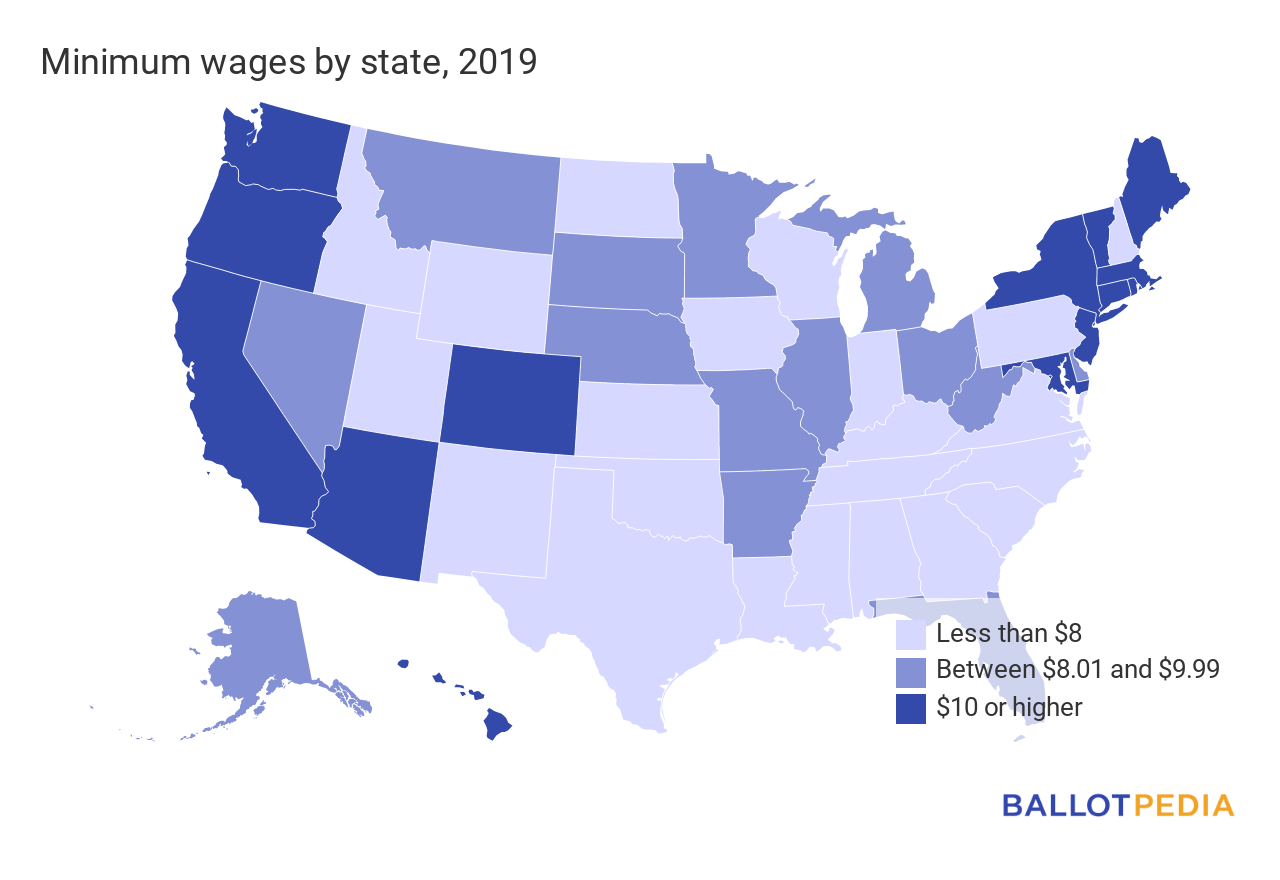Florida $15 Minimum Wage Initiative to appear on 2020 ballot
Florida voters will decide in 2020 whether to raise the state’s minimum wage from $8.46 to $15 per hour. The measure, which will appear on the ballot as Amendment 2, would increase the minimum wage to $10 per hour on September 30, 2021, and raise it by $1 per year until reaching $15 per hour on September 30, 2026. Thereafter, the minimum wage would be adjusted each year based on changes in the Consumer Price Index for Urban Wage Earners and Clerical Workers (CPI-W).
To qualify a citizen initiative for the 2020 ballot in Florida, 766,200 valid signatures are required. In July 2019, initiative sponsor John Morgan reported having collected more than 1 million signatures for Amendment 2. Earlier this month, the Florida Division of Elections showed that proponents had submitted 768,478 valid signatures and met the state’s distribution requirement, which requires that signatures equaling at least 8% of the district-wide vote in the last presidential election be collected from at least half (14) of the state’s 27 congressional districts.
Excluding Washington D.C., which has a minimum wage of $14.00 per hour, the average state minimum wage is around $8.68. The highest statewide minimum wages based on state law are $12.00 in California, Massachusetts, and Washington. In metropolitan Portland, Oregon, the minimum wage is $12.50. In New York City, the minimum wage is $15.00 for certain employers.
Georgia and Wyoming are the two states in the U.S. that have minimum wages of $5.15 per hour, which is lower than the federal government’s requirement of $7.25 per hour. Therefore, the federal requirement supersedes state law for most types of employees.
 Voters throughout the country have decided 27 statewide ballot measures concerning the minimum wage since 1988, all but one of which reached the ballot through initiative signature petitions. The last time voters rejected a minimum wage increase at the ballot was in Missouri and Montana in 1996. The Missouri measure (rejected by a vote of 71% to 29%) would have required all employers to pay employees an hourly minimum wage of $6.25, with a $0.15 annual increase. The Montana measure (rejected by a vote of 56% to 44%) would have re-established a state minimum wage that would have gradually increased from $4.25 an hour to $6.25 an hour by the year 2000. Voters throughout the country have decided 27 statewide ballot measures concerning the minimum wage since 1988, all but one of which reached the ballot through initiative signature petitions. The last time voters rejected a minimum wage increase at the ballot was in Missouri and Montana in 1996. The Missouri measure (rejected by a vote of 71% to 29%) would have required all employers to pay employees an hourly minimum wage of $6.25, with a $0.15 annual increase. The Montana measure (rejected by a vote of 56% to 44%) would have re-established a state minimum wage that would have gradually increased from $4.25 an hour to $6.25 an hour by the year 2000.
From 1996 to 2018, an average of between seven and eight measures appeared on the ballot during even-numbered years in Florida. Of all 91 measures on the ballot between 1996 and 2018, 76% were approved and 24% were defeated.
Forty-three statewide ballot measures have been certified for the 2020 ballot so far in 20 states. That number includes three other minimum wage measures in Arizona, Idaho, and Missouri.
|